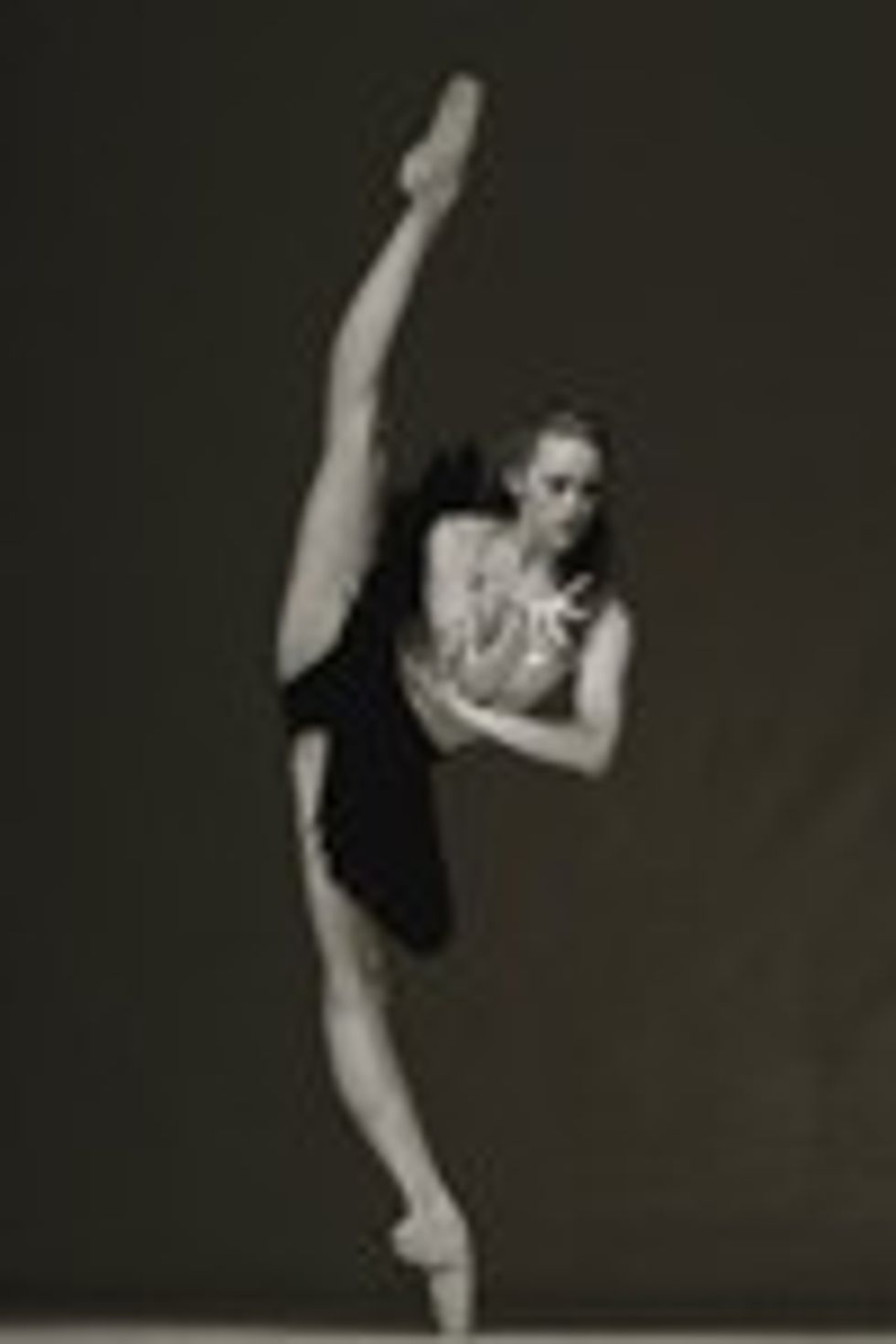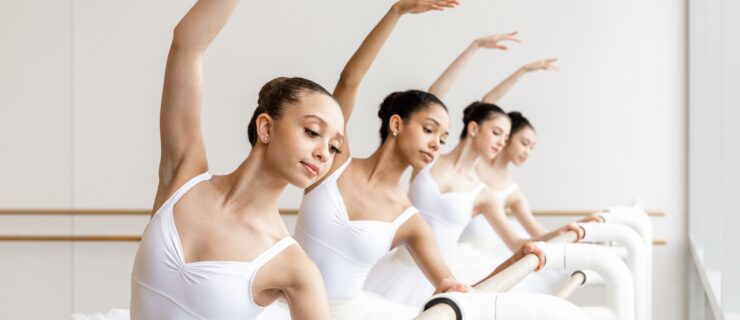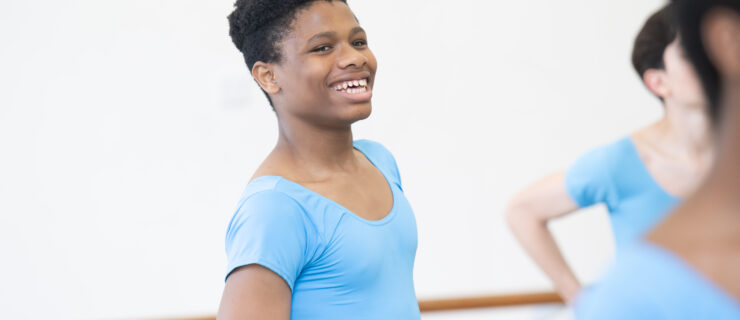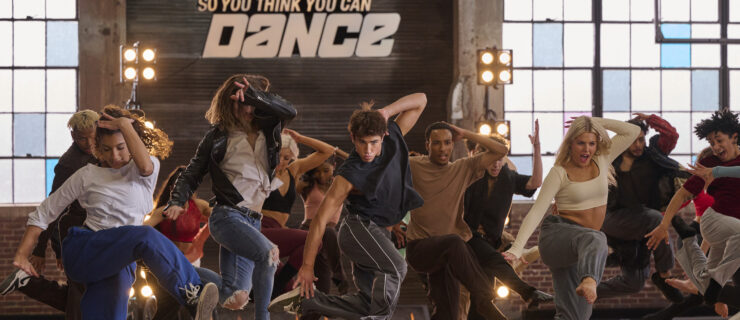Competition Know-How

Music. Costumes. Makeup. These are all essential for competition. Leave home without them and you’ll be left dancing in jeans to the sound of the audience’s breathing; not an ideal situation.
But remembering your material possessions is just the first step toward competition victory. What will help you persevere as the pressure builds are the mental and physical pointers that you acquire through experience. No one knows this better than those who have graduated from competition dancer to professional.
DS called upon four past comp winners who successfully transitioned to the professional world to divulge what really makes a difference when you’re under the circuit lights.
Prepare
Finding a balance between being well-rehearsed and overdoing it can be one of the hardest lines to find leading up to a competition. But as Teddy Forance (past Teen Dancer of the Year at American Dance Awards and Master Dance of America at Dance Masters of America who has gone on to tour with Janet Jackson) can attest, sometimes the best way to anticipate the stress of competition is to push yourself to the limit in the weeks beforehand.
“Preparation is a nonstop process,” Forance says. “My teacher always said to do numbers full out so that you grow every time you’re in the studio. Then by the time you get to the stage, you’re on another level than you were a month ago; you don’t have to think about the steps.”
Remember, it’s not just about getting the choreography ingrained in your body. It’s about making that choreography come alive by committing physically and emotionally each time you dance.
Be Serious
Competition isn’t a vacation. You have sacrificed time and money to follow your passion, and there’s no reason to throw that all away for an extra dip in the hotel pool.
“The number one priority when competing should be you,” says Dusty Button, 2006 Youth America Grand Prix bronze medalist and current member of Birmingham Royal Ballet. “It’s easy to get distracted by your surroundings, especially if you’re not used to it. Keep your mind on the task at hand and get yourself warmed up and ready to go.”
But Not Too Serious…
Conversely, if you get too wrapped up in the performance, you might psych yourself out before it even happens! Find little things to enjoy while preparing to go on stage, like putting on your favorite shade of lipstick or going through a special plié combination.
“When I’m getting ready, the first thing I like to do is come up with a playlist,” says Taja Riley, 2007 winner of New York City Dance Alliance Teen Outstanding Dancer and assistant to Travis Wall at NYCDA. “I find a couple songs that remind me of the dance I’m about to perform. But I avoid playing my performance song all the time because people tend to get tired of the song they’re dancing to.”
Keep It Fresh
Fatigue is inevitable at competitions. Yet it’s not just the amount of dancing that you have to be cautious about. It can be difficult to feel inspired by a routine you’ve performed 30 times already. Reinvigorate your piece with new energy—every time!
“There’s always room to grow, even if it’s the same piece,” Forance says. Set challenges for yourself. Find a new body part to focus on each time you go on stage, whether it’s cleaner arms or sharper feet. Don’t coast on the fact that you performed the piece well the last time around.
Riley agrees. “If there is an improv section in my piece, I change it up a lot, so people look forward to something new every time I’m on stage.”
Additionally, be receptive to your surroundings. “What’s cool about competitions is that you’re in a new space each time,” says Jodi Adkins, a dancer with the Pretty Girls of Dance who competed at Starquest, Showstopper and Rainbow Connection and now judges competitions. Each theater, judge and audience has a unique energy, Adkins says. Let that help you keep your routine fresh.
Support Everyone
Interacting with competing studios is also one of the great benefits of competition. Dancers from other studios may approach training and performing differently than you do. Look at this as a valuable learning tool, not a cause for animosity.
“Everyone is there for the same purpose,” Button says, “and there’s absolutely no reason to be a diva when everyone is trying to support one another.”
Being able to adapt to new styles will help you when working with choreographers in the professional world later on.
“Open your eyes and watch as many performances as possible to soak up the styles,” Forance suggests. “You can find your own style by letting people influence you, without letting them take over your own originality.”
Compete With Yourself
“I don’t see competitions as win or lose,” Riley confesses. “Personally, if I don’t feel good about my dance, I’m not going to be satisfied whether I get a platinum or an honorable mention. It’s about how I feel when I get off stage.”
“The outcome really depends on the energy of the day,” Adkins says. “You have to realize it’s not the end of the world if it doesn’t go your way.” On a different day with different judges, the outcome could have been totally different!
The only thing you’re really in control of is your attitude and your own performance. Stay focused on the reason you are at a competition—your love of dance—and do the best you can for yourself and for your team. With a little hard work and dedication, it’s just a matter of time before you’ll be dancing alongside experts in the professional world! But for now: Remember to pack your makeup. And an extra bit of passion.




